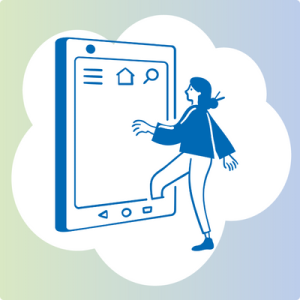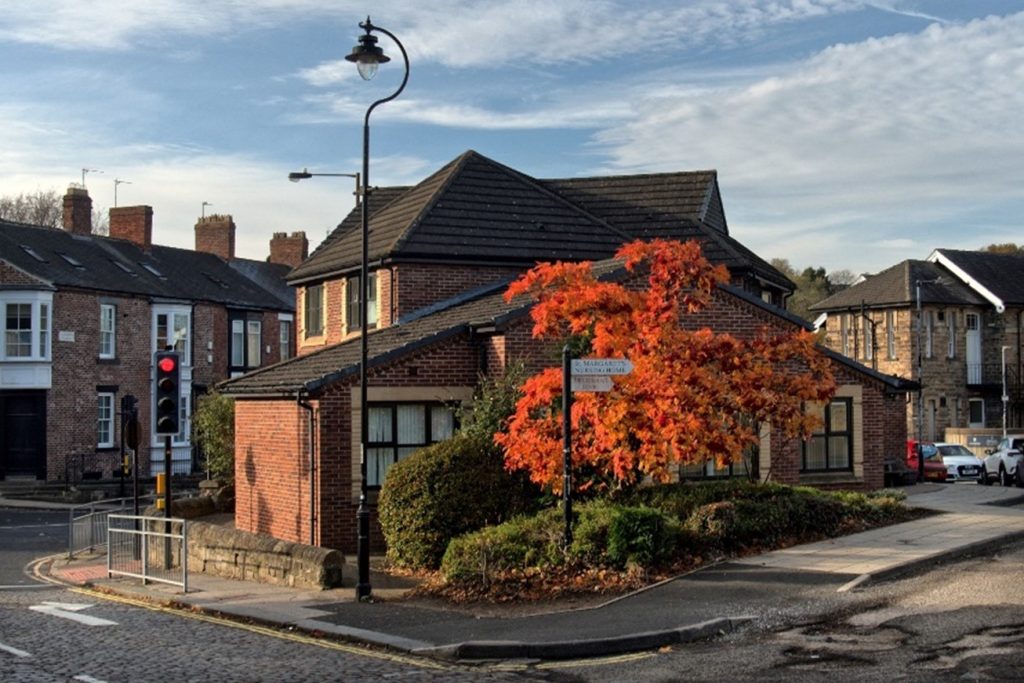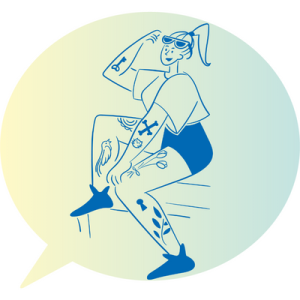On this page
Recovery College Online

Recovery College Online provides a range of online educational courses and resources. We offer recovery-based information and resources, covering a wide range of mental health and wellbeing topics, as well as real life experiences and stories, and free online courses on our e-learning site.
Anyone can access the website and the online courses, and there is no need for a referral, you simply create a free account to use the courses. The resources are available without creating an account.
How to access courses
Some of our courses are available for guest access which means that anyone can view them. However, most of our courses require you to create a free account with us.
You can create a free online account on our e-learning site, which is easy and quick to do. We’ll then authorise your account and you’ll be able to complete any of the courses that you’d like. You can take the courses in your own time and at your own pace, and if you decide to leave a course before you’ve finished it, when you next log in to your account, you can continue the course where you left off.
Visit the Recovery College OnlineARCH Recovery College in Durham

Courses are available for adults struggling with their mental health, carers and staff, based on recovery principles.
ARCH Recovery College is in central Durham at St Margaret’s Health Centre.
We offer:
- A resource base for adults struggling with their mental health, carers and staff
- An opportunity for people with lived experience of mental health issues to develop skills and understanding
- An opportunity for staff to become more recovery-focused and to consider their own wellbeing
- A place where adults struggling with their mental health, carers and staff learn together
- Courses delivered in co-production by experts by experience and experts by profession

Our ARCH Recovery College timetable
View the latest course list Find out more about our coursesHow to book a course at ARCH recovery college
If you are interested in attending a course, first you need to be enrolled with the college. We hold monthly drop-in enrolment sessions on the first Thursday of every month (10 am – 12.30 pm), no need to book or contact us beforehand, just come along to enrol.
If you can’t make it to one of the monthly drop in sessions, contact the office on 0191 451 0890 or email [email protected] and arrange a meeting to be enrolled. You can do this face-to-face, over the phone, or on Microsoft Teams.
You may also be referred to the college by your care team.
One of the peer trainers will meet with you face-to-face to discuss what kind of courses may be of interest to you as well as taking your contact details and completing a short questionnaire.
If you have any queries, please complete our contact form below and we will be in touch.
For further information
Durham ARCH Recovery College has been developed with the support of the following organisations:
- Aspire
- Durham County Council
- Durham County Wide Forum
- Durham Dales, Easington and and Sedgefield Clinical Commissioning Group
- North Durham Clinical Commissioning Group
- Stonham Home Group
- Waddington Street Centre
Follow us on Twitter @archrecovery
Like us on Facebook /durhamrecoverycollege
Is ARCH Recovery College for me?
We offer a number of courses which are primarily based around group discussion.
This includes sharing ideas and opinions; sharing our stories of recovery and our journeys so far and talking about different diagnosis to gain a greater understanding of mental health.
The group size is usually between 10 and 12 people which allows for good discussion and gives each person the chance to share their ideas and experiences if they wish.
Each of our sessions is delivered by an expert by profession and an expert by experience, which often gives a differing perspective on the topic being discussed.
Content on the website has been co-written from different perspectives and includes overview from those with lived experience. There are service user stories on the site along with site information, views and opinions, as well as the e-learning resources.
What do we mean by recovery?

Recovery is a personal journey. You might already have, or are at least developing, your own definition of what recovery means to you.
Personal recovery is felt to be much more relevant when we are thinking about mental health and distress, as often it is not the diagnosed symptoms that are the most troubling thing for people. They may wish to have a greater sense of purpose, an understanding of their distress or more control over what happens to them.
Although reducing symptoms or certain feelings by using things like medication and therapy is very important and useful for many people, personal recovery goes way beyond treatment.
Everyone’s ideas about their own recovery will be different, and this is why it can be difficult to describe exactly what recovery is.